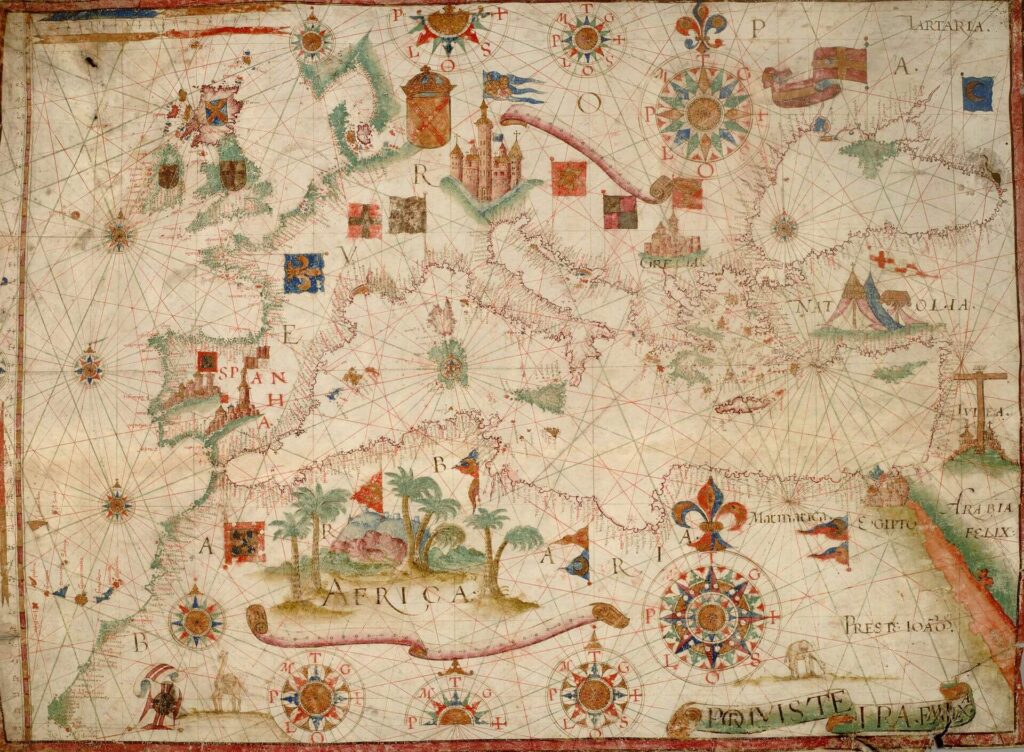Fernand Braudel and the idea of the Mediterranean

In 1947, at the end of the Second World War, the historian Fernand Braudel decided to look into the impossible task of defining precisely what the term “Mediterranean” covers.
The term “Mediterranean” is widely used today, alluding in turn to the sea, sun, dreams, desires, as well as conflicts and dramas. In other words, we all have an idea, our idea, of what it means when we talk about the Mediterranean — a notion which is often very visual.
Some see it as a holiday resort, others as a reality in which their lives are anchored, others still as a geographical space subject to the hardship of wars, and often alongside them, misfortunes. In short, the very notion of the “Mediterranean” is by no means self-evident.
What is the Mediterranean?
It is to this historian we owe a number of works in which he approaches the Mediterranean from all angles. The most emblematic work – which is also his doctoral thesis — remains “The Mediterranean and the Mediterranean World in the Age of Philip II”, a work on the foreign policy of King Philip of Spain.
And yet, and this is the other legacy which Braudel left; the ideas put forward by this illustrious historian have hardly aged at all. As a historian and visionary, Braudel was able to combine a wealth of different approaches (economic, psychological, social, political, etc.) that allow us to understand today what the Mediterranean world has in store for us.
In fact, by wanting to get off the beaten track and away from a purely historicist vision, Fernand Braudel, who advocated interdisciplinarity, introduced the idea of Mediterranean “geo-history.”
He is noted to have said, “historians, we must also be geographers, economists, legal analysts and psychologists in our own right.” According to Braudel, it is by implementing a whole range of social sciences that we can adequately understand the depths of the Mediterranean reality.
Truly Mediterranean culture
After all, the Côte d’Azur is, as much as Tunisia, Italy or Greece, a part of the “Mediterranean” countries. But is Nice really more similar to Algiers than to Lyon? Are Naples or Palermo closer to Oran or Alexandria than to Milan or Turin?
The presence of the sun or sea changes everything for those living on the Mediterranean shores. They offer a certain sweetness to life and vitality that feeds a particular envy. What’s more, they form the basis of truly Mediterranean culture.
The Mediterranean Sea, however, is not enough to unify a culture. This is the whole purpose of the first section of Braudel’s work “middle ground,” through which he gives an account of the multitude of divisions characteristic of the “Mediterranean world.”
In other words, where it is the norm to want to think of a “world” by its homogeneity, Fernand Braudel substitutes difference as his definition of “One”.
Rich history of the Mediterranean
It is the very melting pot-like nature of the Mediterranean world that has forced its residents to make efforts in communicating with one another. The multitude of “Mediterranean” seas (Ionian, Tyrrhenian, Aegean, Levant, etc.) are united – within the Mediterranean Sea itself – by the establishment of maritime networks that allow the exchange of goods, merchandise, and ideas.
Since the history of the Mediterranean is several thousand years old, you can look at, for example, the importance of Averroes’ Aristotelianism in Western Europe, which affected much of medieval philosophy and the continental school of thought.
There’s little doubt that the Mediterranean must be understood as the very definition of ambivalence. Its essence lies in its plurality, its unity in its multiplicity and its cultural contradictions. In reality, the “Mediterranean world” is above all many different worlds.
Multiplicity of worlds
Braudel himself identified a multiplicity of worlds: the world of the plains (which are relatively uncultivated), the world of the hills (where wine or olives are cultivated and produced, characteristic of Mediterranean countries), and finally the world of the mountains (a landlocked world which provides arms).
Even today, the Mediterranean remains emblematic of this paradox where unity is born out of diversity. Sometimes rich and industrialized, especially in the North, such as Monaco and the Riviera’s luxury markets, sometimes troubled or war-torn, in the South, like Benghazi or Tripoli. They can be both dream countries, and territories to escape.









